- Home
- Andrew Wareham
Hungry Harry: An Orphan in the Ranks Page 2
Hungry Harry: An Orphan in the Ranks Read online
Page 2
Spring came, again. Harry thought it might be the fourth time since he had been brought there. He was taller now, had to duck his head in two places in the drift; he was stronger as well, broad across the shoulders though still skinny. They would soon be going into town to find another boy, as they did every year, and this time he would be the one given a pick-axe and sent down to the face.
They were building the longer trackway they had been talking about, at long last; they had cut a path down to the canal side and now were fixing in the wooden tracks for the little wagons to run on. Another week and they would be sending the first trial down the hillside. They had bought in two new wagons, with big brake levers on the back so that they would not run away from the boys on the way down.
Harry had listened to the two fat men arguing over winter; the one thought the wagons would be too heavy for the boys to pull them back up the steep slope but the older man thought they could do it, particularly if they were belted a couple of times to persuade them.
“Don’t matter ‘ow bloody much tha belts they, Father. That old slope’s bloody steep in places and they ain’t going to be able to do it. Happen the trucks do run away, then they’s goin’ to crash all the way down and into the canal, an’ if they blocks that, then we’s in deep trouble!”
“Can’t run to the cost of a bloody ‘oss, not wi’ the amount we spent out already this winter!”
“Put in a windlass at the top of the two steep bits. The boys can wind ‘em up. Push ‘em on the flat in between.”
It cost money that the old man begrudged, but he dared not be the cause of an accident on the canal. The two windlasses were installed and ropes were bought. They showed Harry how to hook the ropes on and turn the windlass and set its pawls so it would not spin back. He was to be in charge on the trackway, they said; if he did the job properly he would not have to go down the drift ever again.
The trucks were small, carried no more than two tons of coal apiece; the trackway came in on the downhill side of the coal heap at the pit and Harry could shovel them full in ten minutes. Then he pushed them to the edge of the first slope and set the big handbrake while he checked again that they were properly connected together and then he stood at the back, released the brake and shoved until they began to roll. After that it was jump up on the step and swing on the brake to keep them slow as they rattled downhill; he released the brake a few yards before the track flattened out halfway up the hillside so they had enough momentum to roll to the next downslope. At the windlass there he stopped them and jumped down to hook the loose rope on; then it was downhill to the canal itself. Sometimes there was a barge there loading up from the heap at the wharf and then he would run the trucks carefully to the very end of the track and tip them directly into the hold. The trucks were pivoted at the bottom and could be pushed over to one side to empty them. If there was no barge, then he tipped them onto the heap.
The bargees had to load up themselves and would slip Harry a meat pie or a sandwich or a couple of apples in season for saving them some work.
For a year he grew and flourished in the new job and then the younger fat man took a wife. She was much younger than him – farmers’ wives always were - and she sang sometimes and laughed. She cooked a meal every day for the two fat men, a big, hot greasy stew on week days and a baked joint on Sunday. Mutton mostly, but there was scrag end of beef sometimes and the odd rabbit and pork on high days. She always made enough stew for the boys to have a bowl as well – long on the potatoes and parsnips and carrots, thin on the meat, but far better than they had ever had before. The fat men had argued at first, begrudging the cost, but the boys seemed to work better for it, were healthier and stronger, so they eventually agreed it made sense.
Harry put on more muscle, still far larger than the other lads, for having the food the bargees gave him and the oddments he still stole at night. During the summer the missus would leave the kitchen window of the farmhouse ajar; perhaps she knew that the boys were still hungry and was sorry for them, but there was often a slice or two of bread in reach with maybe a pot of dripping or piece of cheese, and there was never a word of anything missing.
He had been at the mine for six years, he thought, and had become a man in his body, strong and swaggering just a little, when he reached through the window one night to discover the missus was still in the kitchen. She told him off, in a whisper, and said he was lucky that her husband and his father were both gone into town; it was raining and she told him to come in out of the wet and take a warm at the kitchen fire. She had not caught pregnant in two years, and the boys had laughed that the fat man hadn’t got it in him. Quite what ‘it’ was, Harry had no idea, but he had laughed along with the others.
The missus had evidently decided that her husband was lacking in an important way and very quickly dispelled Harry’s ignorance for him, the kitchen table conveniently available.
The two men went into town most weeks and Harry’s education in the kitchen was continued very frequently; he was much in favour, hungry for more than food now, and swaggered even more.
Towards the end of the winter his final illusions were dispelled when she told him she was in the family way and that he could bugger off out of it. The mine was making good money and her life was very comfortable and she was not having him hanging around for her husband to look at his face and compare it with her son’s, thank you very much. She had been saving from the housekeeping for months in expectation of this day and put nearly two pounds in his hand.
“You’ve been a good lad to I, me dear, and you’ve ‘ad a good enough time out of it too! Now you get off down the hill and onto that old towpath and be ten miles down the way to Derby before the old sun rises, and don’t you never come back to these parts, neither! Off thee goes!”
He had never heard of love and had no preconceptions in that direction, but it seemed a little abrupt to him. On the other hand, two pounds was not to be sneezed at; he did not know quite how much it was or what he could buy with it, but he was sure it would be very useful. He grinned his best and gave her a last kiss.
“Fare thee well, me dear! I shall think of thee, off and on!”
She laughed and pushed him out of the door, pointed his bare feet down the track and out of her life.
The towpath was cold and lonely and he had never even thought of walking it, of running away from the mine, the only life he knew. He stretched out, making the miles as he had been bidden; he did not know if he was breaking any law by running away, but he was fairly sure the fat men would be unhappy with him if they found out all that he had been doing.
Dawn found him down on the flat lands, out of the hills where he had been forever. There was a turning pool beside a large iron foundry with coke ovens and a huge pile of coal; he supposed this was where the barges had come to all these years. He spotted a face he knew, a bargee who had been generous enough to him, walked across to give him good morning.
“Beest that thee, Harry? What art doing in these parts, young ‘un?”
“Run, Sonner. I ain’t stayin’ up in that place no more.”
“Nor do I blame thee for that, boy. No life for any man, running trucks up and down that old hillside. Where dost thou think to go, Harry?”
Sonner laughed, quite sure that thought had not been any part of the plan.
“Don’t know, Sonner.”
“No place for thee on the barges – family only on the water. No work in the foundry – this is where they makes iron, boy, and only men the master knows to come and work for him – sons and nephews of his own folk already here. Was I thee, then I would take myself across to the big towns and look for something there. I am for London and the docks there with a load of ironwares to go overseas. Five shilling for thy food and thou canst come aboard.”
Harry produced his handful of coins and Sonner explained which was which, pointing to farthings and ha’pennies and penny pieces and thruppeny bits and tanners and the occasional shilling. He explained how to coun
t them, twelve pennies to a shilling, twenty shillings to a pound and twenty-one to a guinea. He showed him how to count first, as Harry had never heard of numbers bigger than three.
They talked during the days down the long canals that crossed Southern Britain, drifting along behind the ambling tow-horse, discussing just what Harry could do when they reached London.
The answer was, ‘very little’. He had no skills, other than pushing trucks of coal on a trackway. He could not read or write; had no concept of either, in fact. He could not ride a horse. He could not drive a wagon. He had never handled a tool of any sort other than a shovel in all of his life.
“Two choices, as I do see it, young ‘un. Thee can join a gang of navvies, if so be they would take thee, and thou art overly young for them to be willing to carry thee; it takes a man grown to be a navvy! Other than that, thou canst go for a soldier, for there never be enough of they, even in times of peace. The wars in America be over and they be offering only a few pennies as a bounty now, but every regiment has old men getting past service and a need for youngsters to stand in their place. Best thou shouldst look for a regiment in a town in the Shires, not down in London. Thou art a biggish lad and the Guards would snap thee up, and their life is not of the best – parades and drill and never to leave London Town. Was I thee, and I am not forcing thee, I would take myself off to the barracks in Northampton or Bedford or somesuch place. A few years as a soldier and the time will come when thou canst take French leave, as they call it, when it is convenient to thee, and find thyself a life as a man overseas where a strong back and a willing mind be most of what counts.”
Harry was not sure where ‘overseas’ was, and asked Sonner to explain. He was told about America, and Canada, and the Sugar Islands, and India – all of them wonderful places where a man could settle and make a fortune. Sonner made a soldier’s life sound both exciting and easy and Harry soon realised what an excellent thing it might be to join up and serve his King; Sonner did have to explain just what a King was, however.
They tied up outside Bedford and Sonner left Harry aboard with his wife and son while he went into town to discover whether there was a regiment in the barracks and if they needed men. He came back quite elated, telling Harry that his luck was in. There was a battalion of infantry in town, newly formed and in need of men to make up its numbers and soon to go overseas on a posting.
“They will pay thee a bounty of three whole pounds just for joining with them, Harry-boy!”
He offered to take Harry along in the morning – he would go with him and stand at his shoulder and testify to his age and if needs be act as witness to his mark on the papers of enlistment.
Harry thanked him for his kindness and went to his pallet in the little space in the bows of the barge in the happiest frame of mind. He had a future now, an occupation as a man.
They walked shoulder to shoulder along the riverside and into town, reached the old barracks site early in the morning, too early in fact for any of the officers to have stirred out of their beds in the Mess.
“When you gets in there, make sure you calls them ‘sir’. It’s one of the rules.”
They waited at a pie-stand and Sonner very kindly bought a breakfast for Harry with a mug of hot ash-key smouch as well.
“Time you’re a soldier, you’ll drink tea, Harry-boy, or beer rather than this stuff!”
It was the only hot drink Harry had ever tasted, a mug a day in the cold months of winter, and he quite liked the homely flavour. ‘Poor man’s tea’, he had heard it called, but accepted that as just another name for the plant it was made from.
The sun became warm and they walked back to the gatehouse, begged the sergeant very politely whether the young man could come in to volunteer. The guard-sergeant took one look at Harry, young and tall and strong-seeming, clean-skinned and alert – no signs of pox or idiocy – and ordered the barrier opened and escorted the two of them to the offices at the side of the parade ground.
The sergeant marched into the Adjutant’s rooms, came out a couple of minutes later and told the pair they could go inside.
The Adjutant was a surprisingly elderly lieutenant, a man well into middle-age; he spoke with a homely accent and seemed a very kind gentleman to Harry.
“What is your name, young man?”
“Harry, sir.” Sonner intervened to add ‘Belper’, the name of the town telling the Adjutant that the boy was a foundling.
“Belper, Harry, young man. Remember that.”
“Yes, sir.” Harry had not had two names before; he supposed this was how the Army did things. He watched as the Adjutant wrote on a piece of printed paper.
“Your age?”
Harry had no idea but Sonner answered that he was eighteen before he could say so.
“Are your parents alive, Belper?”
Sonner shook his head.
“No, sir.”
“So be it. Do you wish to swear to serve His Britannic Majesty, King George the Third?”
“Yes, sir.”
“Very good, Belper. I shall have you taken to the Court Rooms, there to swear before a magistrate, provided the Surgeon confirms you to be fit and healthy. The sergeant will take you to the Surgeon now, and then he will go with you to the Magistrate. When you return you will be paid your Bounty for signing on and then you will be taken to the Quartermaster to be issued with your uniform. Do you understand?”
“Yes, sir.”
“Very good. Do your duty; obey all orders; love your King – no more is required of a good soldier.”
“Yes, sir.”
The Orderly Sergeant took Harry out of the office and led him across to the Surgeon to wait to be examined. As soon as he was out of the door the Adjutant turned to Sonner, stood expectantly.
“One fit and upright young man, as you promised yesterday, Mr Sonner. There is a crimp’s Bounty of six pounds and six shillings payable to you, sir. Cash in hand. My corporal will give it to you immediately. We are in the most urgent need of men, especially fit youngsters of that stamp, and will be happy indeed to take more from you.”
Sonner promised to look out for him – it was not uncommon to find runaways at the canalside and he would do all that he could to bring them in. Six guineas more than doubled his earnings on the month and Harry was the third he had come across in the year; he wondered if he should not become a little more active in his recruiting of country boys. Hayseeds who did not know left from right could often be persuaded of the joys of a soldier’s existence, he believed.
“Are you to be in Bedford for long, sir?”
“We march to Bristol next month, Mr Sonner. We are due to take ship for Cape Coast Castle soon thereafter. We have but four hundred men, sir, and would wish to number not fewer than six hundred before we sail. There will be some more of gaol-delivery men, I doubt not, and there is always the chance of drumming-up recruits on the march, but more young men of that sort will be most welcome.”
Sonner promised to do his very best and collected his money and left. He passed a butcher’s shop as he walked back and bought three big beefsteaks to take to the barge. The family should all share in his windfall.
Chapter Two
The Regimental Surgeon was drunk; it was ten o’clock in the morning and he was almost incapable of standing.
Harry glanced sideways at the sergeant, said nothing.
“Got here just in time, boyo. Another half hour and he would be finished for the day.”
“Is he always like this, sir?”
“Sergeant, not ‘sir’, boyo! Yes. If you ever feel ill, then get to him at dawn – he can be good at his job then… if he’s awake. He was a fine London doctor, once upon a time, before the bottle got to him.”
The Surgeon peered into Harry’s mouth, inspecting his teeth, possibly mistaking him for a horse and checking his age – he had worked with cavalry in the past.
He made the quick check for a rupture.
“Cough!”
He then passed the
boy fit for duty.
The sergeant led Harry out.
“Well, boyo, you know you’re not dead now!”
“What about him, Sergeant?”
“He will be soon, lad! Into town now, the Beak will be sat on the Bench at this time of day. Last chance, boyo – if you don’t want to sign on then this is when you take off running. You can’t be called a deserter if you haven’t been sworn in.”
“I want to join, Sergeant. There ain’t nothing for me anywhere else. I ain’t going back to the coal mine.”
“Your choice, boyo.”
They walked companionably into town, a mile or so, to the old centre by the river and then into the brick town hall, an uninspiring low pile, the river clays unable to carry an imposing mansion.
A single magistrate was sat in the court-room, dealing out a two shillings fine to a string of drunks picked out of the streets as nuisances, and remanding all other offenders to the full sitting of the Bench due next day. He was sour, crabbed, unhappy that he had fallen due for his duty on a busy day.
“Market-day yesterday, boyo – always a full house of drunken farmers that night.” The sergeant elbowed his way forward into the room, spoke to the clerk sat a desk below the high bench of the justice of the peace.
The enlistment document was placed in front of the magistrate after he had remanded a pair of pickpockets with a sour comment to the effect that they would certainly hang this time; the two criminals, caught in the act and with no defence, burst into tears, neither being more than ten years old.
“Three times this year they have been in front of me, soldier! Who have you here?”
“Belper, sir. Harry. Aged eighteen years and wishing to serve his King.”
The magistrate sniffed, stared at Harry, asked why he wished to enlist.
“Better than the coal mines, sir.”
“From the little I have heard you may be right, young man. Raise your right hand. No, the other hand.”

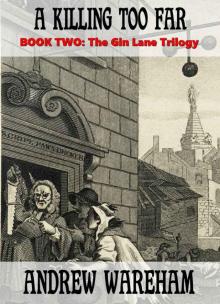 A Killing Too Far
A Killing Too Far Killing's Reward
Killing's Reward A New Place
A New Place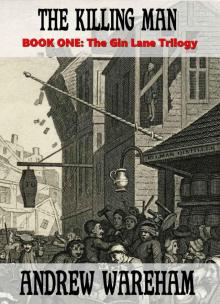 The Killing Man
The Killing Man Bold and Blooded
Bold and Blooded The Breaking Storm (Innocent No More Series, Book 2)
The Breaking Storm (Innocent No More Series, Book 2) Nobody’s Child
Nobody’s Child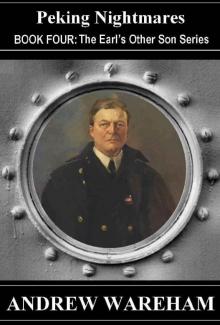 04 Peking Nightmares (The Earl’s Other Son Series, #4)
04 Peking Nightmares (The Earl’s Other Son Series, #4)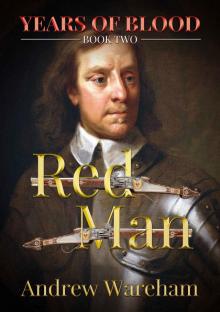 Red Man
Red Man Foreign Mud
Foreign Mud The Gathering Clouds (Innocent No More Series, Book 1)
The Gathering Clouds (Innocent No More Series, Book 1) 06 A Soldier’s Farewell (Man of Conflict #6)
06 A Soldier’s Farewell (Man of Conflict #6) Chinese Whispers
Chinese Whispers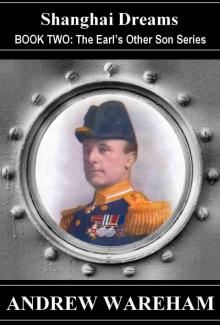 02 Shanghai Dreams (The Earl’s Other Son #2)
02 Shanghai Dreams (The Earl’s Other Son #2)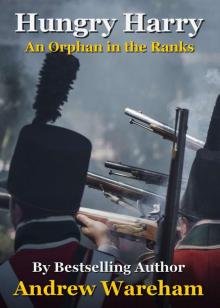 Hungry Harry: An Orphan in the Ranks
Hungry Harry: An Orphan in the Ranks A Wretched Victory (Innocents At War Series, Book 6)
A Wretched Victory (Innocents At War Series, Book 6) Illusions Of Change (A Poor Man at the Gate Series Book 6)
Illusions Of Change (A Poor Man at the Gate Series Book 6) The Wages Of Virtue (A Poor Man at the Gate Series, Book 8)
The Wages Of Virtue (A Poor Man at the Gate Series, Book 8) Blood and Famine (Man of Conflict Series, Book 4)
Blood and Famine (Man of Conflict Series, Book 4) The Friendly Sea (The Duty and Destiny Series, Book 1)
The Friendly Sea (The Duty and Destiny Series, Book 1) Bursting Balloons (Innocents At War Series, Book 5)
Bursting Balloons (Innocents At War Series, Book 5)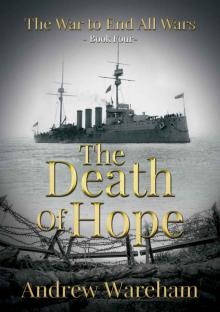 The Death of Hope
The Death of Hope Deadly Shores (The Duty and Destiny Series, Book 11)
Deadly Shores (The Duty and Destiny Series, Book 11)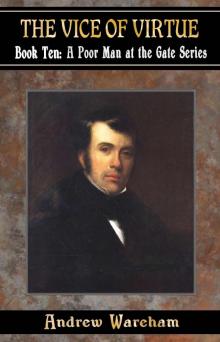 The Vice Of Virtue (A Poor Man At The Gate Series Book 10)
The Vice Of Virtue (A Poor Man At The Gate Series Book 10) Virtue’s Reward (A Poor Man at the Gate Series, Book 11)
Virtue’s Reward (A Poor Man at the Gate Series, Book 11)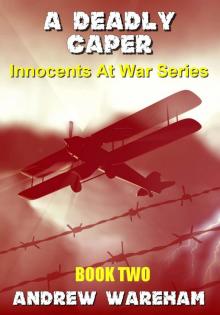 A Deadly Caper (Innocents At War Series, Book 2)
A Deadly Caper (Innocents At War Series, Book 2)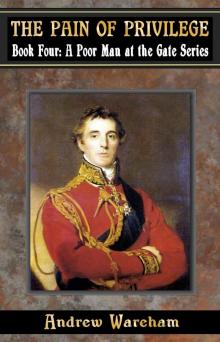 The Pain Of Privilege (A Poor Man at the Gate Series Book 4)
The Pain Of Privilege (A Poor Man at the Gate Series Book 4) Far Foreign (The Duty and Destiny Series, Book 9)
Far Foreign (The Duty and Destiny Series, Book 9)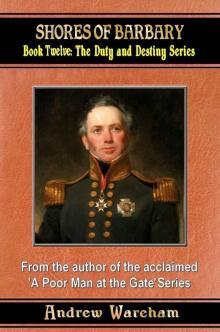 Shores of Barbary (The Duty and Destiny Series, Book 12)
Shores of Barbary (The Duty and Destiny Series, Book 12)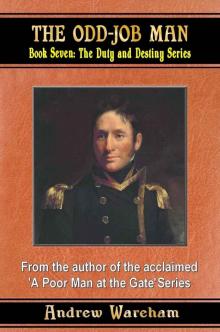 The Odd-Job Man (The Duty and Destiny Series, Book 7)
The Odd-Job Man (The Duty and Destiny Series, Book 7) Fire and Folly (Man of Conflict Series Book 3)
Fire and Folly (Man of Conflict Series Book 3)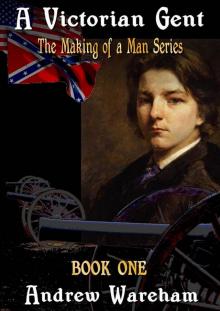 A Victorian Gent (The Making of a Man Series, Book 1)
A Victorian Gent (The Making of a Man Series, Book 1)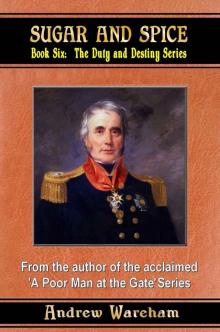 Sugar and Spice (The Duty and Destiny Series, Book 6)
Sugar and Spice (The Duty and Destiny Series, Book 6)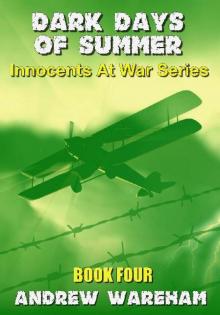 Dark Days Of Summer (Innocents At War Series, Book 4)
Dark Days Of Summer (Innocents At War Series, Book 4)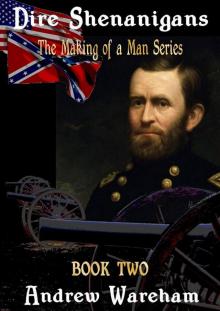 Dire Shenanigans (The Making of a Man Series, Book 2)
Dire Shenanigans (The Making of a Man Series, Book 2)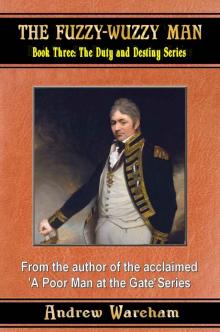 The Fuzzy-Wuzzy Man (The Duty and Destiny Series, Book 3)
The Fuzzy-Wuzzy Man (The Duty and Destiny Series, Book 3)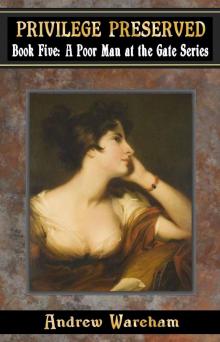 Privilege Preserved (A Poor Man at the Gate Series Book 5)
Privilege Preserved (A Poor Man at the Gate Series Book 5)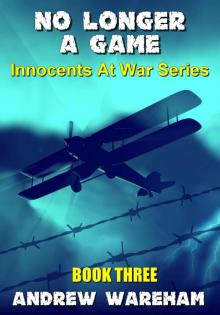 No Longer A Game (Innocents At War Series, Book 3)
No Longer A Game (Innocents At War Series, Book 3)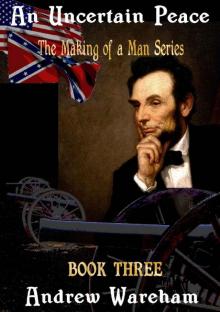 An Uncertain Peace (The Making of a Man Series, Book 3)
An Uncertain Peace (The Making of a Man Series, Book 3)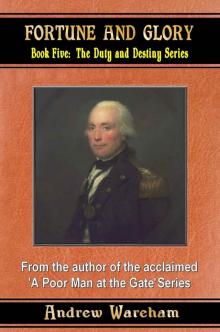 Fortune And Glory (The Duty and Destiny Series, Book 5)
Fortune And Glory (The Duty and Destiny Series, Book 5) The Old Order (A Poor Man at the Gate Series Book 7)
The Old Order (A Poor Man at the Gate Series Book 7) A Place Called Home (Cannibal Country Trilogy, Book 2)
A Place Called Home (Cannibal Country Trilogy, Book 2) Nouveau Riche (A Poor Man at the Gate Series, Book 2)
Nouveau Riche (A Poor Man at the Gate Series, Book 2) The Privateersman (A Poor Man at the Gate Series Book 1)
The Privateersman (A Poor Man at the Gate Series Book 1)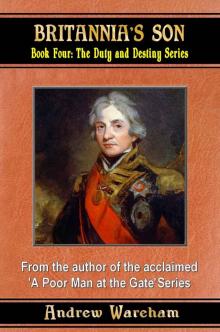 Britannia’s Son (The Duty and Destiny Series, Book 4)
Britannia’s Son (The Duty and Destiny Series, Book 4) Long Way Place (Cannibal Country Trilogy, Book 1)
Long Way Place (Cannibal Country Trilogy, Book 1) Spanish Tricks (Man of Conflict Series, Book 5)
Spanish Tricks (Man of Conflict Series, Book 5) A Parade Of Virtue (A Poor Man At The Gate Series Book 9)
A Parade Of Virtue (A Poor Man At The Gate Series Book 9)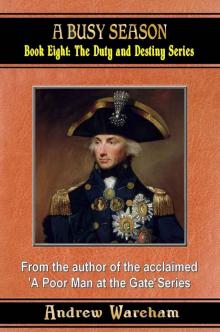 A Busy Season (The Duty and Destiny Series, Book 8)
A Busy Season (The Duty and Destiny Series, Book 8) Billy Bacon and the Soldier Slaves (Colonial Warrior Series, Book 1)
Billy Bacon and the Soldier Slaves (Colonial Warrior Series, Book 1) Raging Rajahs (Man of Conflict Series, Book 2)
Raging Rajahs (Man of Conflict Series, Book 2)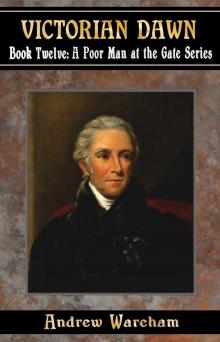 Victorian Dawn (A Poor Man at the Gate Series, Book 12)
Victorian Dawn (A Poor Man at the Gate Series, Book 12) Born To Privilege (A Poor Man at the Gate Series Book 3)
Born To Privilege (A Poor Man at the Gate Series Book 3)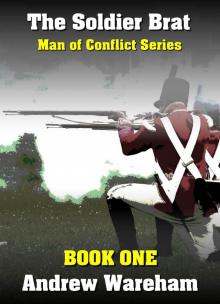 The Soldier Brat (Man of Conflict Series, Book 1)
The Soldier Brat (Man of Conflict Series, Book 1)